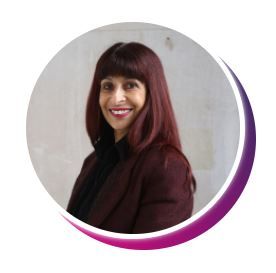On Thursday, March 4th, we hosted the first in our HE Recruitment 2021 webinar series, The Future of Work is Here.
Watch the webinar now and hear from the following participants:
SHEILA GUPTA, MBE

Vice-Principal for People, Culture and Inclusion, Queen Mary University of London
Sheila Gupta, MBE, joined Queen Mary, University of London in January 2020 as its first Vice-Principal for People, Culture and Inclusion. She has a remit for staff, students and alumni in relation to equality, diversity and inclusion. She began her career in Local Government at a time of major policy changes including Compulsory Competitive Tendering and Local Management of Schools.
Download Sheila’s presentation.
IAN HODSON

Head of Reward, University of Lincoln
Ian is the Head of Reward at the University of Lincoln overseeing all aspects of reward including payroll, pensions, employee benefits, HR systems and executive remuneration. Having started his career in finance before moving specifically in to pay and benefits Ian has a background in both the public and private sector having previously worked for Moy Park, Mars, Prudential and Lincolnshire County Council.
RICHARD BILLINGHAM

Executive Director of HR and Organisational Development at Aston University
Richard Billingham discusses why a combination of home- and office-based work is the future for Aston University. He will share details of what they’re planning at Aston University, exploring what they’ll be taking from this time and implementing in the future, and discussing the people, space and technology required to create a successful hybrid working environment.
Download Richard’s presentation.
Our webinar, Rebuilding the Workforce can be seen here.


Share your comments and feedback